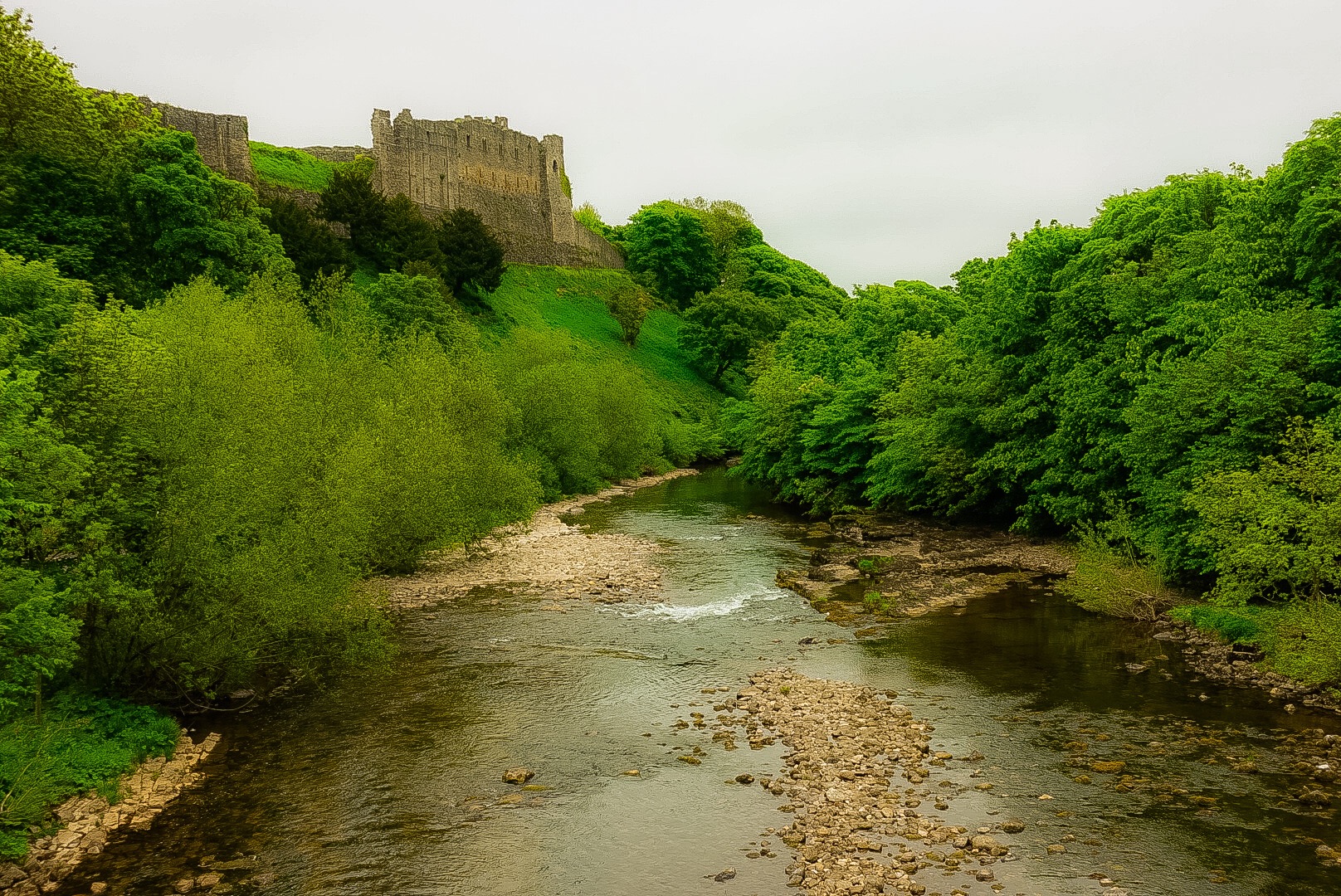
I was writing this post last night, sitting on the bed. Joel told me, when he came out of the bathroom and went to bed, that I was still at it. What he and I didn‘t know then was that I wasn‘t working on the blog at that moment. I was sitting up, propped by some pillows, and sound asleep. Sometime after that, I woke up and looked at my unfinished post. As hard as I tried, for the next 30 seconds, I could not carry on. I put it aside and went back to sleep. So, nothing got posted yesterday.
Now, I have to finish 2 days of posts! It is the end of Day 13, but I will go back to Day 12 and finish it.
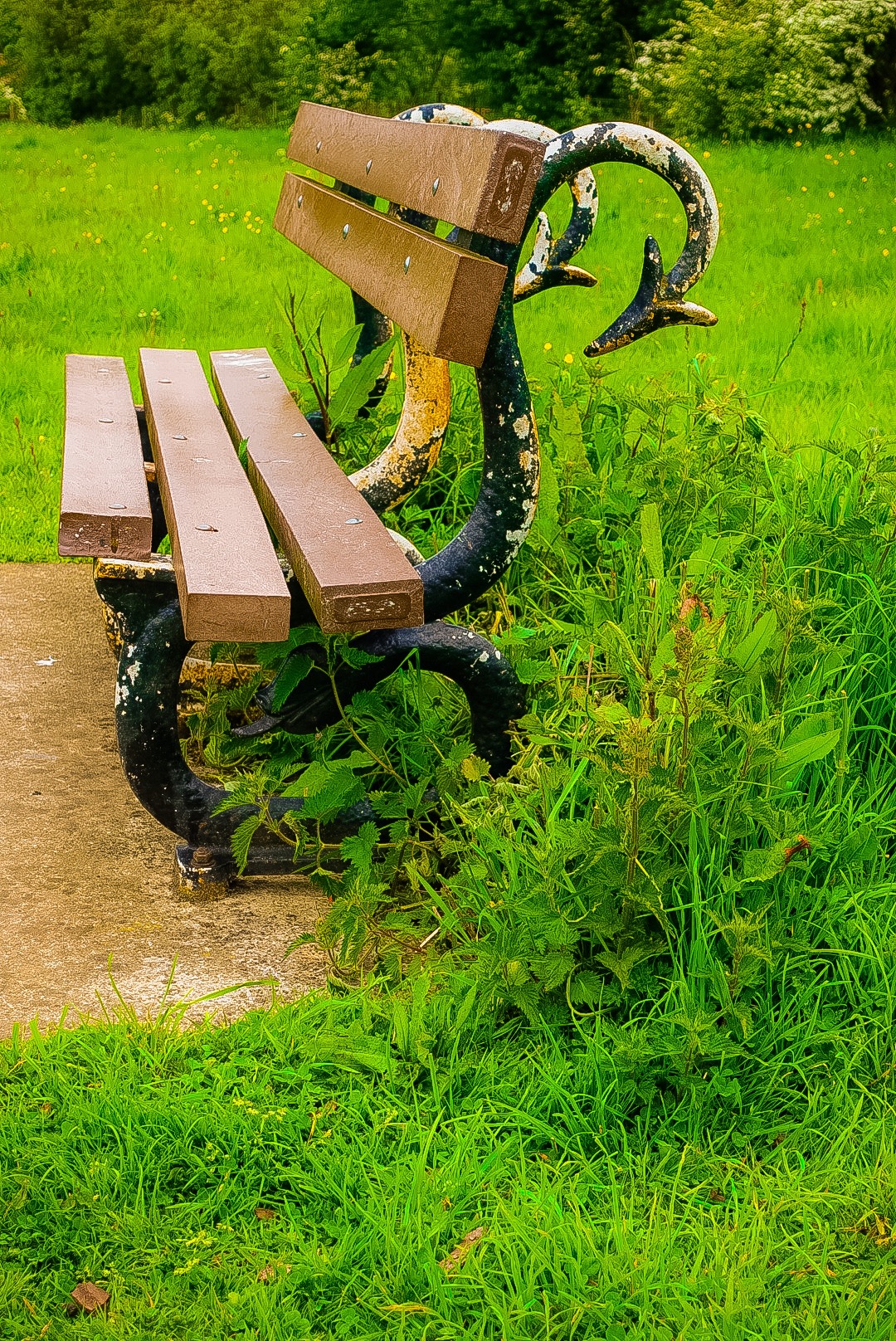
But, anyway, Wainwright did not particularly like this part of the walk he created. He said that it was fitting that, at approximately 110 feet above sea level, it is the lowest point on the walk, except the coastlines at either end.
Wainwright also lost little love for Danby Wiske, our overnight at the end of Day 12, writing it off as completely without anything worth describing. Without my wanting to offend anyone from these parts, Wainwright was not far off, and, while I might write more about Day 12, Day 13, following this, I will hardly spend time with at all.
We went under the A1 highway. I mean, it was inevitable that we were going to have to hit a highway sooner or later. England is not separated, north and south, by no roads. I include a picture of the A1 and a couple of other pictures from our path, and it is clear that there is not much to say about it all.
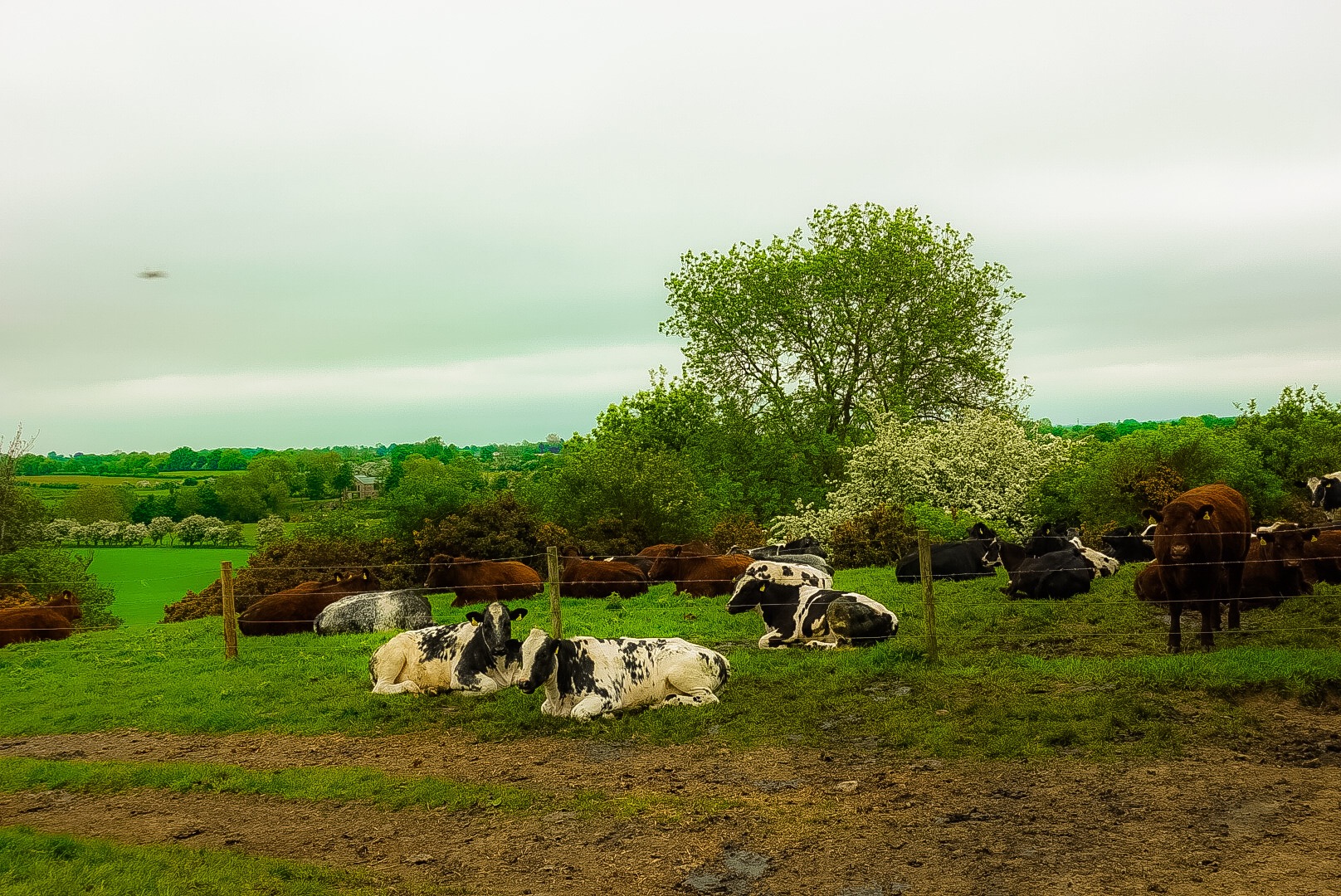
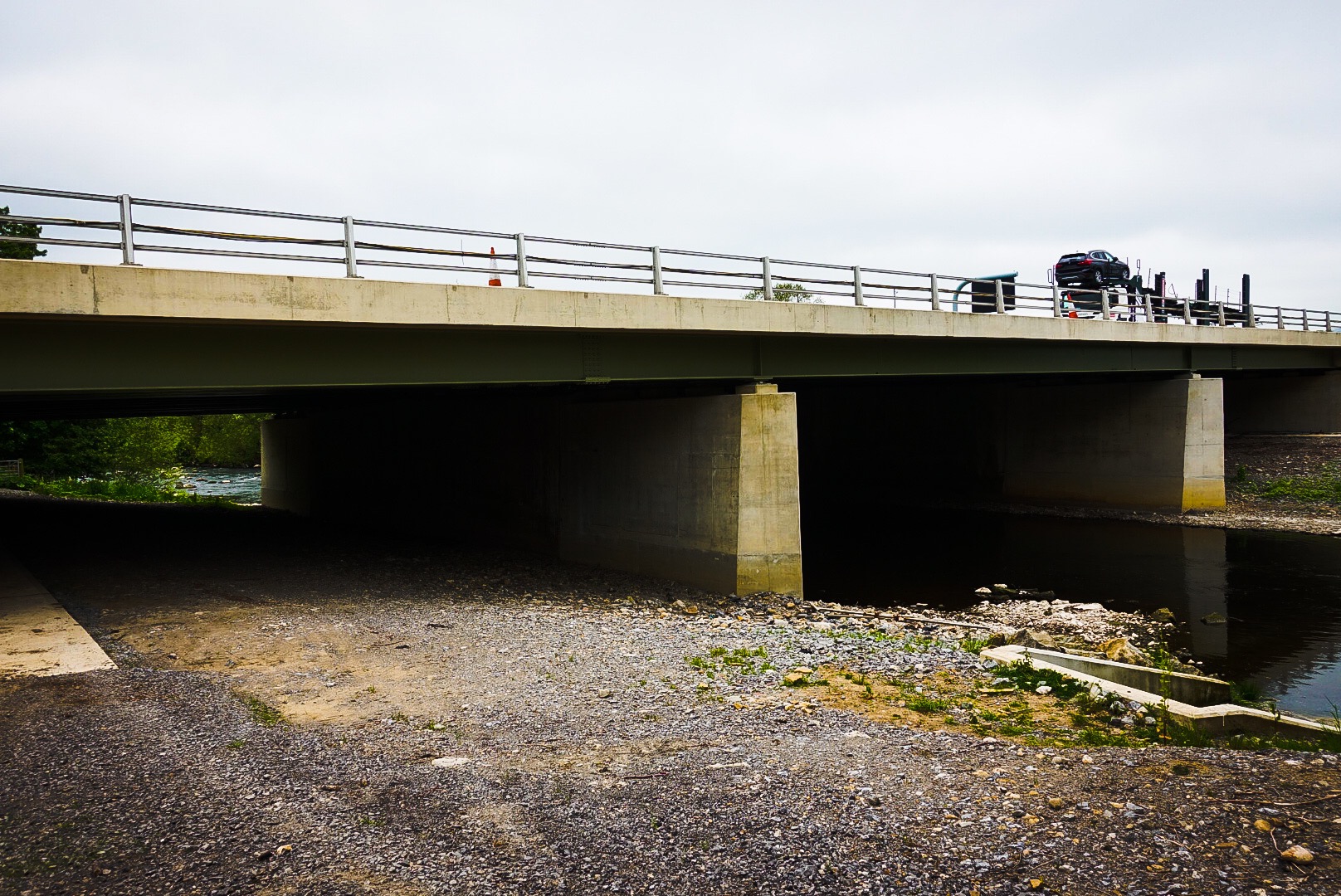
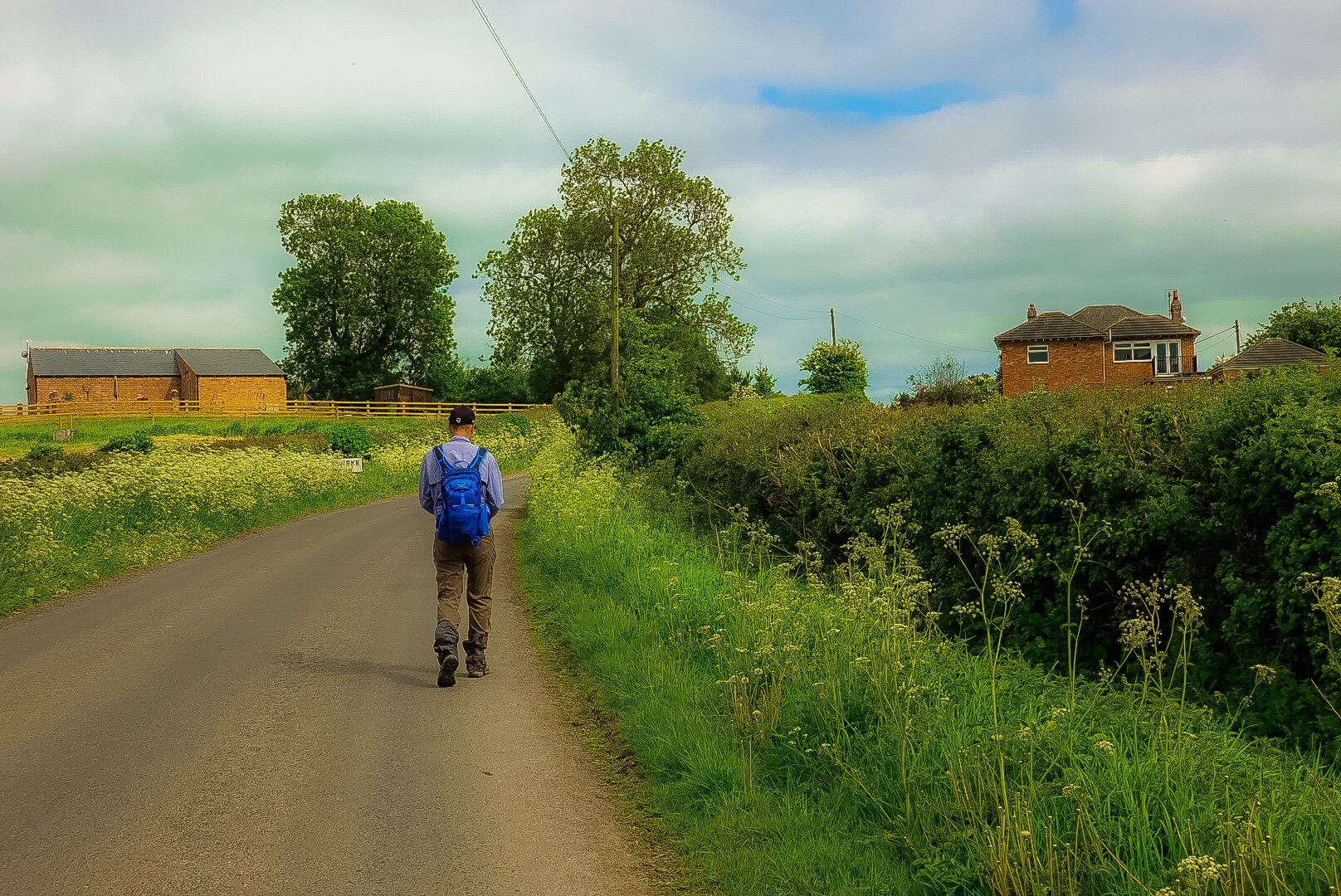
Oh, one interesting thing was the churchyard of the church in Bolton on Swale. It has an attraction. Henry Jenkins is buried there, and it attracts a lot of tourists. So, what did Henry Jenkins do? Only one thing – he was supposedly born in 1500 and and died in 1670, making him 169 years old when he died. Well, he is buried in the churchyard. Apparently, a lot of retired people move to Bolton on Swale.
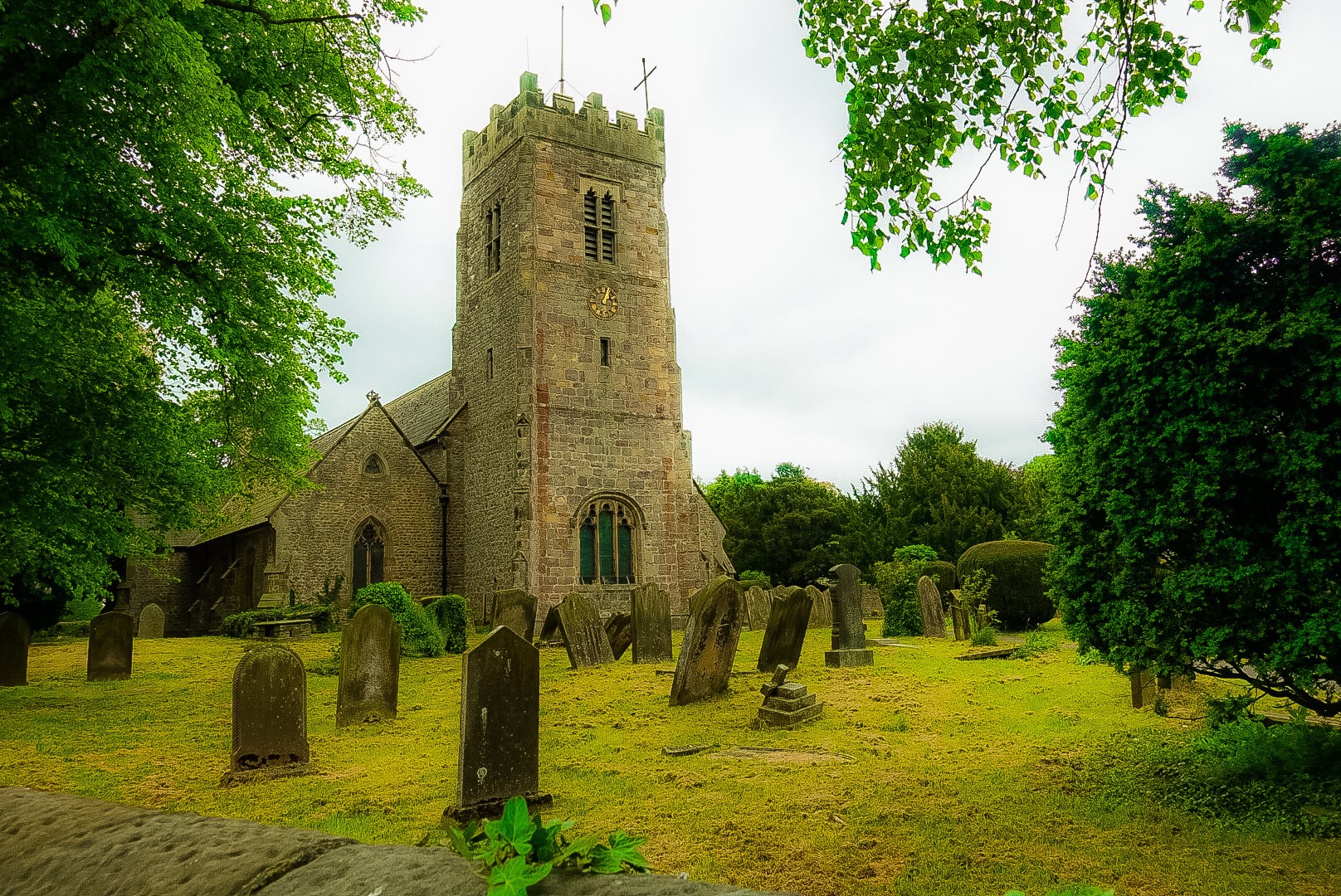
We arrived at Danby Wiske, where the hamlet’s only pub already had us down for dinner. We went to our B&B, the one that Joel‘s acquaintance so highly recommended. It was run by a very nice woman, but we detected nothing extraordinary about the place otherwise.
We were asked to leave our boots in the foyer and I turned around to do that, when my backpack caught an umbrella or cane sticking out of an umbrella stand made out of ceramic. It threw it over and the stand smashed into a hundred pieces. The proprietress said she had brought it back from a holiday in Spain, but was very gracious about it, after mentioning that fact. I noticed that the home was otherwise completely devoid of any decorative objects. I smashed the only decoration in the house. I told her if she had any Gorilla Glue, I could fix it. She didn’t know what I was talking about, so we drop the subject.
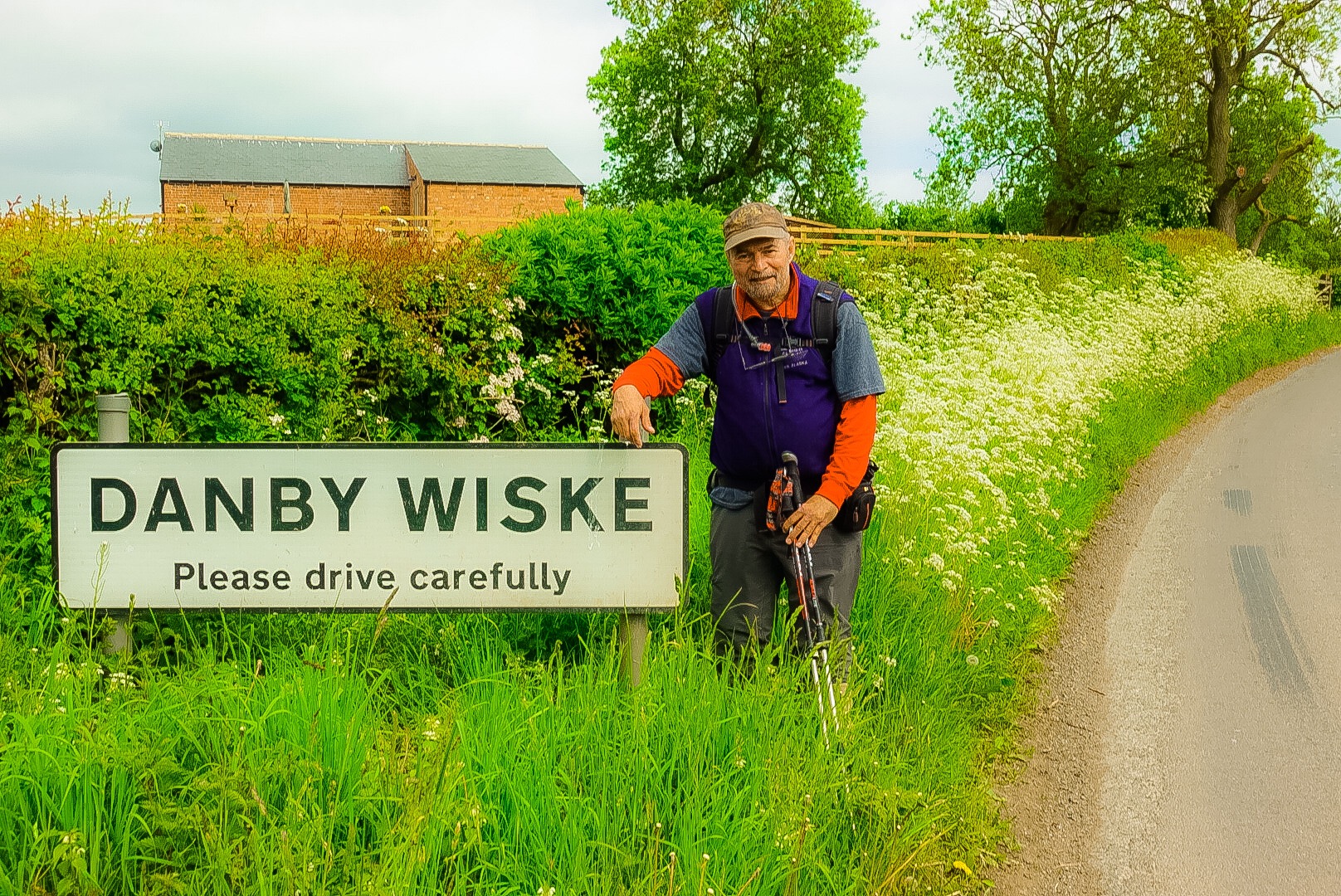
And, that was about it. Now onto to Day 13, which is going to be very short.
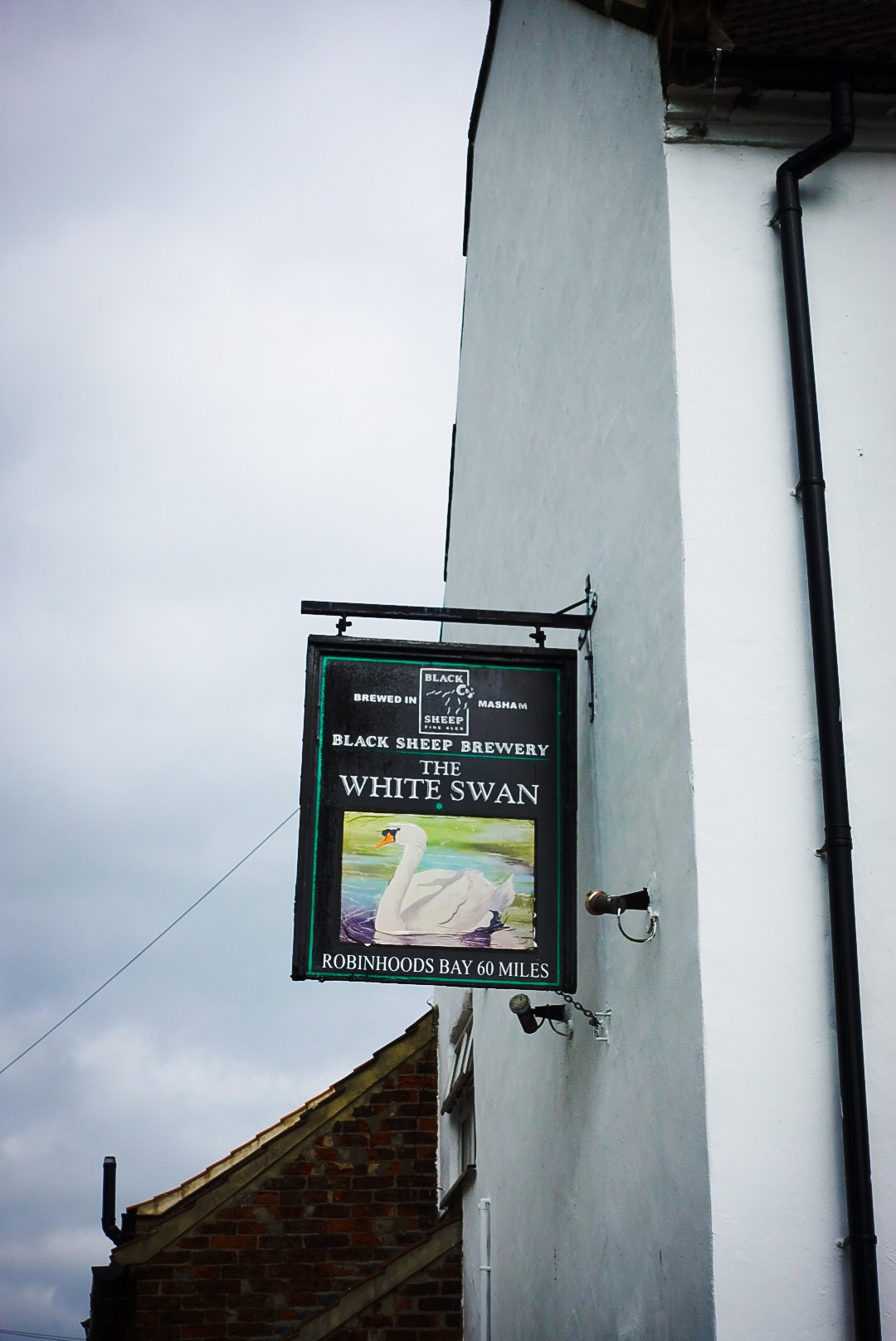
q

Jeff – Please answer these questions in tomorrow’s blog post:
1. Why can’t a C2C walker break-up the journey into 5-mile daily walks, instead of the 15-20 mile daily walks you do? It sounds like most of the long hikes are tough, and that you don’t have time to stop and smell the roses.
2. How much money have you spent so far, and what is your budget for the whole C2C walk? Please back-out the travel costs incurred to and from the terminal points of the walk. No need to convert Sterling into dollars. I will do that math.
I will send more questions after I get satisfactory answers to these two queries.
Matt
Matt, I have to think about these questions. I will get to them. The day routes do have to coincide with towns and B&Bs. After 5 miles, we may have had to sleep on a pile of rocks. Mr. Wainwright designed his walk to cross much uninhabited territory, which is no mean feat in England!